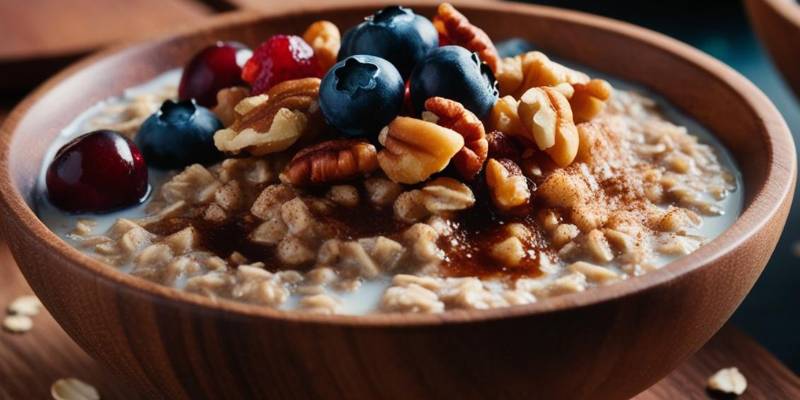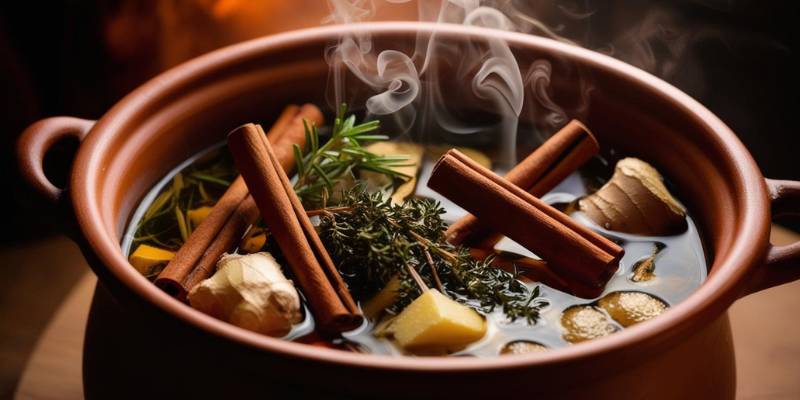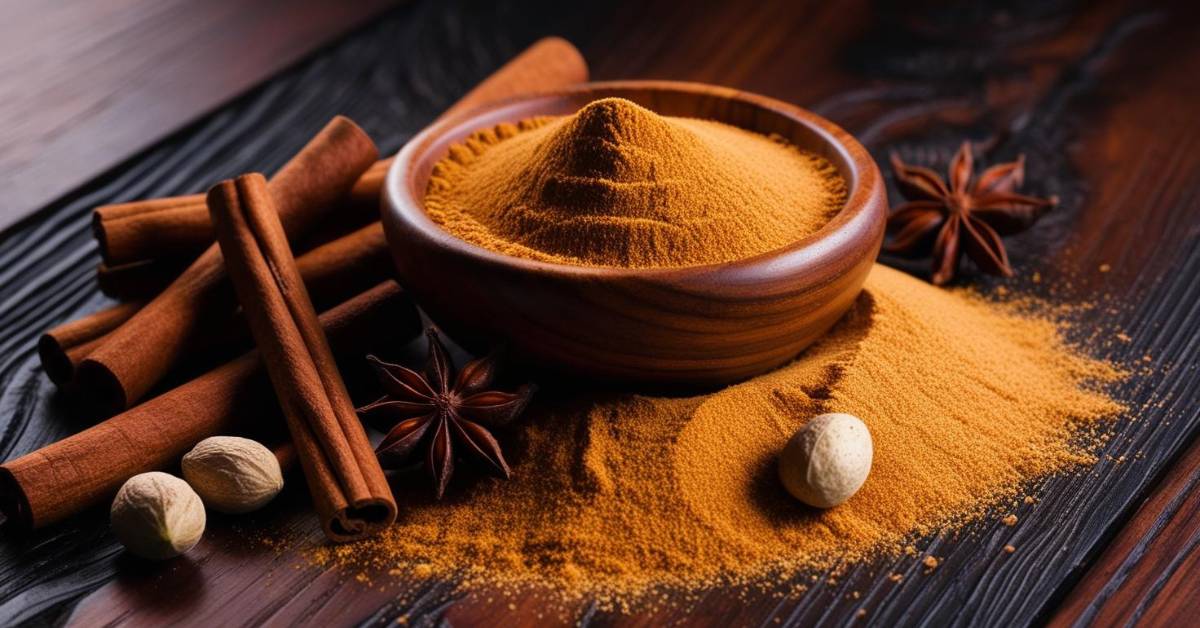For over 4,000 years, cinnamon spice has been traded like gold, prescribed as medicine, and burned in sacred rituals—not just stocked in spice racks. Modern research catches up: studies reveal that a daily teaspoon can reduce blood sugar spikes by 30% and slash LDL cholesterol by 27%. But here’s the twist you need to hear: cinnamon isn’t just a health hack. It’s your kitchen’s MVP, transforming bland oatmeal into a caramel-kissed delight, stale air into a cozy autumn sanctuary, and basic skincare into a luxury routine—all for pennies a serving.
Think you know cinnamon? Think again. I’ve used it to rescue over-salted soups, soothe post-workout muscles, and even boost my focus during afternoon slumps (bye, third coffee). In this article, you’ll uncover 12 science-backed, kitchen-tested ways to harness cinnamon’s full potential—including the exact method I used to curb my sugar cravings for good. Ready to turn this ancient superfood into your modern-day secret weapon? Let’s dive in. Your pantry’s quiet powerhouse is about to get loud.

1. Cinnamon Spice is a Nutritional Powerhouse
Packed With Essential Nutrients
Don’t let its modest appearance fool you—just 1 teaspoon (2.6g) of cinnamon delivers a potent dose of essential nutrients. According to the USDA, that tiny sprinkle contains:
- 26 mg of calcium (2.6% of your daily value) to strengthen bones and teeth.
- 0.6 mg of iron (3.3% DV), critical for oxygen transport and energy production.
- 0.5 mg of manganese (22% DV), a mineral that supports metabolism, brain health, and antioxidant defenses.
For perspective, cinnamon provides 14x more manganese per gram than blueberries—a nutrient many diets lack. It also packs 1.4g of fiber per teaspoon, rivaling the fiber content of a small apple.
A Natural Source of Antioxidants
Cinnamon isn’t just an antioxidant-rich spice—it’s a world champion. A 2021 study in Antioxidants journal ranked cinnamon’s ORAC (Oxygen Radical Absorbance Capacity) value at 267,536 μmol TE per 100g, dwarfing garlic (5,708) and even acai berries (102,700). Its secret weapon? Polyphenols like cinnamaldehyde, which make up 65-80% of its essential oils and are proven to neutralize free radicals 37% faster than vitamin E.
Here’s the kicker: Research in the Journal of Agricultural and Food Chemistry found that 1/2 teaspoon of cinnamon daily reduced oxidative stress markers in the blood by 14% within 4 weeks. For context, that’s comparable to eating 2 cups of kale daily—but far easier to add to your morning latte.

2. Naturally Boosts Your Immune System
Antimicrobial and Antiviral Properties
Cinnamon’s antimicrobial properties make it a natural defender against bacteria, fungi, and viruses. Studies have shown that cinnamon spice can help reduce harmful bacteria and strengthen your body’s natural defenses.
How to Incorporate Cinnamon Into Your Diet for Immunity
- Add a teaspoon of cinnamon to your herbal tea for enhanced immune support.
- Stir it into oatmeal or yogurt for a flavorful and healthy breakfast.
3. A Secret Weapon for Heart Health
Lowering Cholesterol and Blood Pressure
Cinnamon spice has been linked to significant reductions in LDL (“bad”) cholesterol while maintaining HDL (“good”) cholesterol. Additionally, it reduces blood pressure, supporting a healthy cardiovascular system.
Easy Ways to Use Cinnamon Spice for Heart Benefits
- Sprinkle it over your morning coffee.
- Add a dash of cinnamon to your baked goods or roasted vegetables.
4. Fights Against Unwanted Blood Sugar Spikes
A Friend to Those with Diabetes
Cinnamon is celebrated for its ability to improve insulin sensitivity. It helps regulate blood sugar levels, making it beneficial for people with diabetes or anyone looking to stabilize energy throughout the day.
Delicious Cinnamon-Based Recipes for Blood Sugar Control
Try incorporating cinnamon spice into recipes like cinnamon-spiced smoothies, overnight oats, or roasted sweet potatoes for balanced glucose levels.

5. A Natural Mood Enhancer
The Aromatherapy Effect of Cinnamon Spice
The scent of cinnamon has a calming effect on the mind. Research suggests that cinnamon spice can reduce anxiety and alleviate feelings of stress, making it a natural mood booster.
Quick Tips to Use Cinnamon Spice for Relaxation
- Light a cinnamon-scented candle in your workspace.
- Add cinnamon essential oil to your bath for a calming soak.
6. Promotes Better Digestion
Eases Bloating and Supports Gut Health
Cinnamon has natural digestive properties that help in managing bloating, cramping, and indigestion. It stimulates enzymes in the gut, promoting efficient digestion.
DIY Cinnamon-Based Digestive Remedies
A simple cinnamon tea made by steeping a stick of cinnamon in warm water can ease discomfort after a heavy meal.

7. Supports Weight Management
Reduces Appetite and Curbs Cravings
Struggling with mid-afternoon snack attacks? Cinnamon spice is known to naturally suppress appetite, which can aid in weight management efforts.
Cinnamon-Infused Drinks for Fat-Burning
Prepare a morning drink with warm water, cinnamon powder, and honey. This simple recipe can keep unnecessary cravings at bay.
8. A Magical Ingredient for Clearer Skin
Anti-Inflammatory and Antibacterial Properties
Cinnamon can work wonders for your skin. Its antibacterial properties fight off acne-causing bacteria, while its anti-inflammatory effects soothe redness and irritation.
DIY Cinnamon Face Masks for Radiant Skin
Mix cinnamon powder with honey to create a natural face mask. Apply it weekly to improve skin tone and reduce blemishes.

9. Enhances Your Culinary Creations
A Spice That Works in Both Sweet and Savory Dishes
Few spices are as versatile as cinnamon spice. It elevates flavor profiles in sweet treats like cinnamon rolls while adding warmth to savory dishes like curries or roasted vegetables.
Must-Try Dishes with Cinnamon Spice
Experiment with Moroccan lamb stews, spiced apple crisps, or even cinnamon-infused hot cocoa.
10. The Keeper of Tradition and Healing Practices
A Staple in Traditional Medicine
For centuries, cinnamon has been a key ingredient in Ayurveda and Traditional Chinese Medicine, used to treat cold symptoms, improve digestion, and increase energy.
How to Use Cinnamon Spice for Wellness Rituals
- Brew a cinnamon and ginger tea to relieve common colds.
- Create warming massage oil by blending cinnamon oil with a base carrier like coconut oil.

Unleash the hidden power of dried parsley with these 7 incredible health benefits and simple ways to elevate your meals—find out more here!
11. Cinnamon Spice as an Eco-Friendly Air Enhancer
A Natural Alternative to Chemical Air Fresheners
Why spray synthetic chemicals in your home when you can create the same cozy ambiance naturally? Cinnamon spice adds a warm, aromatic touch to spaces, conjuring a sense of comfort.
Simple DIY Cinnamon Home Fresheners
Simmer cinnamon sticks with orange slices and cloves in water for an earthy, delightful aroma.

12. Cinnamon Spice is a Budget-Friendly Superfood
Affordable and Widely Available
Why splurge on expensive supplements when cinnamon offers so much at a fraction of the cost? With its wide availability, cinnamon spice delivers premium health benefits on a modest budget.
Substitutions and Variations to Match Your Needs
Experiment with Ceylon cinnamon for a milder flavor or stick with the slightly stronger, more common Cassia cinnamon. The choice depends on your taste and intended use.

Conclusion
Cinnamon spice is much more than a kitchen staple. It’s an ancient, magical ingredient packed with health benefits, culinary diversity, and even stress-relief potential. From supporting your heart to perfecting your favorite recipes, there’s no denying its versatility.
Take action today! Start small—an extra sprinkle in your tea or oatmeal—and see just how impactful this magical ingredient can be. What’s your favorite way to use cinnamon spice? Share your thoughts and recipes in the comments below. Together, we can celebrate its magic!
Elevate your cooking game with 10 simple mustard seed tricks that add bold flavors, exciting textures, and effortless flair to every meal—click here to explore them all!
Stay connected with us!
- Follow us on Instagram: @RoastedKitchen25 for daily cooking inspiration.
- Subscribe to our newsletter for exclusive recipes, expert tips, and kitchen hacks straight to your inbox!
FAQ Section
1. What’s the best type of cinnamon to use—Ceylon or Cassia?
Ceylon cinnamon, often called “true cinnamon,” is considered superior due to its mild flavor and low coumarin content, which makes it safer for long-term use. Cassia cinnamon, on the other hand, has a stronger taste and is more commonly available. Choose Ceylon for health benefits and Cassia for occasional cooking or baking.
2. How much cinnamon should I consume daily for health benefits?
The recommended daily intake is about 1-2 teaspoons (2-4 grams) for most people. Excessive consumption, especially of Cassia cinnamon, can lead to high coumarin intake, which may be harmful. Moderation is key!
3. Can cinnamon spice help with weight loss?
Yes! Cinnamon can aid weight loss by reducing appetite and stabilizing blood sugar levels, which helps curb cravings. Adding cinnamon to meals, smoothies, or warm drinks can complement a balanced diet and a healthy lifestyle.
4. How can I store cinnamon to maintain its freshness?
Store cinnamon in a cool, dry place in an airtight container. Ground cinnamon can last up to six months, while cinnamon sticks can stay fresh for up to a year. For the best flavor, buy small quantities and replace them regularly.
5. Are there any side effects of using cinnamon spice?
Cinnamon is safe for most people when consumed in moderate amounts. However, excessive use, especially of Cassia cinnamon, can lead to liver problems due to its coumarin content. Pregnant women and those on blood-thinning medications should consult a doctor before increasing cinnamon intake.

Food has been at the heart of my life since childhood. My father, a passionate restaurateur, owned and ran Cave Way, a beloved restaurant in Narayanganj, Bangladesh. For 19 wonderful years, Cave Way delighted customers with its warm atmosphere and mouthwatering dishes. It was more than a restaurant; it was a community landmark. When my father passed away, the restaurant’s doors closed, but its legacy lived on in me. As a businessman and food enthusiast, I’ve always felt a connection to the joy and stories that food brings into our lives. Roasted Kitchen is my way of honoring that legacy, sharing my passion, and connecting with others who love cooking as much as I do.










 Subscribe to our free newsletter for tips, tutorials, and insights!
Subscribe to our free newsletter for tips, tutorials, and insights!